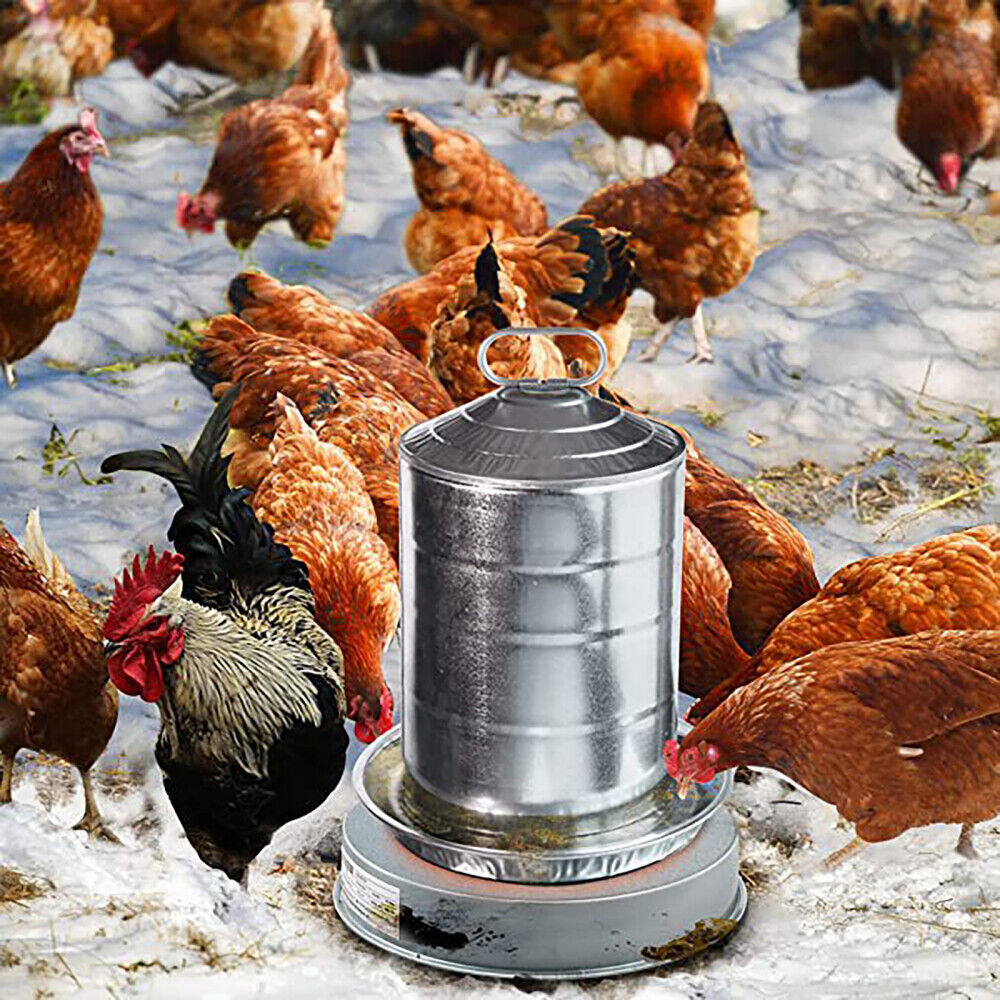For those interested in raising chickens, chicken water heaters can be an essential part of their husbandry. In climates with cold winters, chicken water heaters can help keep your chickens’ water from freezing, allowing them to stay hydrated and healthy. Not only can they make your life easier, but they can also make your chickens thrive and flourish. In this article, we’ll discuss the benefits of using chicken water heaters and how they can help your chickens stay healthy throughout the year.
Benefits of Heated Water Containers for Chickens
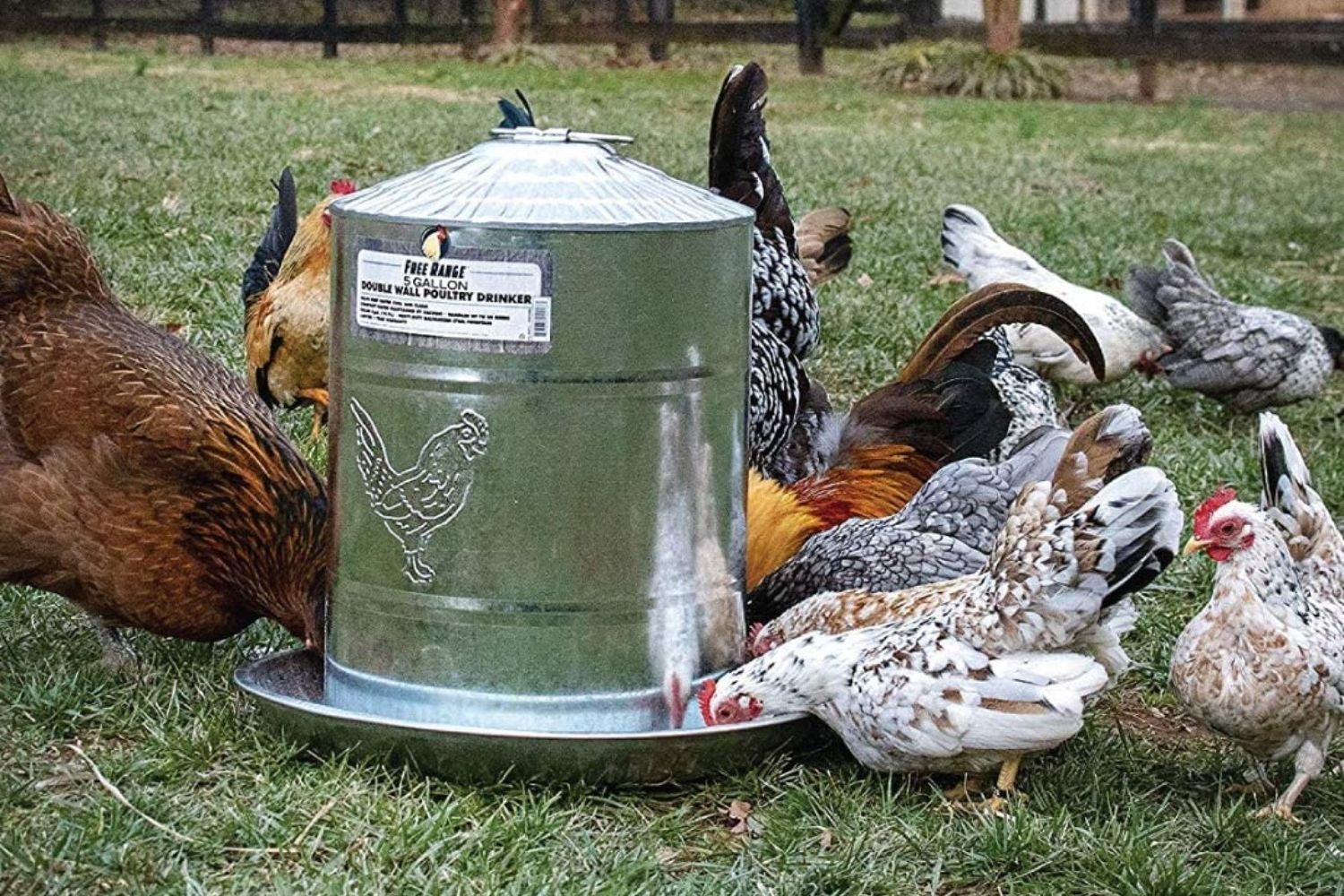
Improved Comfort
Using a water heater for chickens will help keep chicken water from freezing in cold temperatures, which can be a real danger to chickens. This can help your chickens stay warm and comfortable during the winter months, and it can also help to prevent frostbite and hypothermia.
Easier to Keep the Water Clean
Keeping the water clean for your chickens is essential for their health and wellness. With a heated water container, you won’t have to worry about cleaning out the container as often, since the water won’t freeze in the cold. This makes it easier to keep the water clean, and also helps to reduce the risk of diseases caused by unclean water.
Lessens Chances of Disease
Using a water heater for chickens can help to reduce the chances of diseases that can be caused by unclean or freezing water. This can help to keep your chickens healthy and thriving, and it can also help to reduce the amount of money you spend on vet bills.
Types of Water Heaters for Chickens
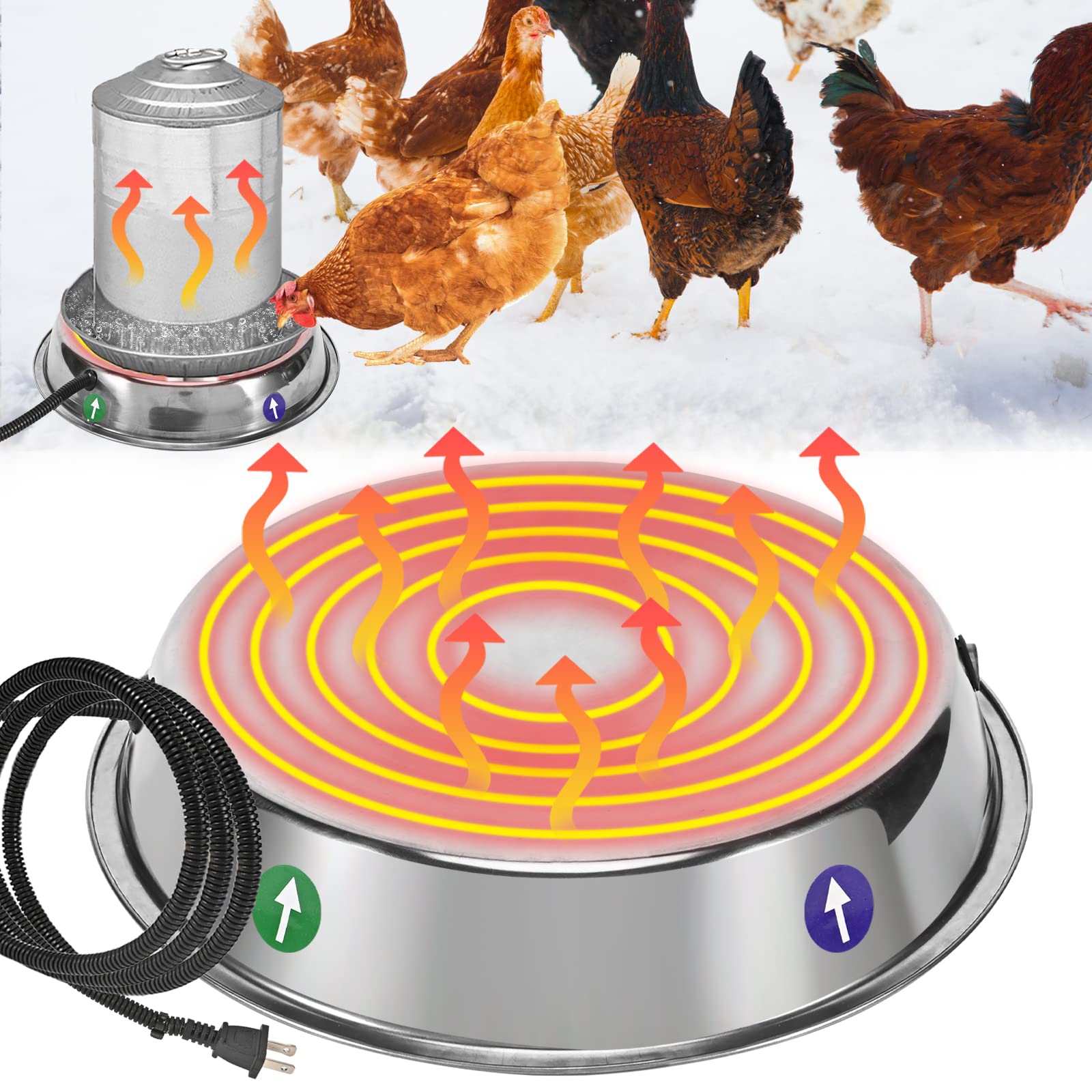
Immersion Heaters
Immersion heaters are a simple, economical solution for keeping water warm for chickens. They are designed to fit inside the waterer and are powered by electricity. They are easy to install and maintain, and are a great way to provide a constant supply of warm water for your chickens.
Solar Heaters
Solar heaters are an ideal option for keeping chicken water warm in the warmer months. Solar heaters are designed to capture the sun’s rays and use them to heat the water in the waterer. They are easy to install and require minimal maintenance, making them a great choice for chicken water heaters.
Electric Heaters
Electric chicken water heaters are a great way to keep your chickens’ water warm all year round. They are easy to install and require minimal maintenance. Electric chicken water heaters provide a constant source of warm water and are a great way to ensure that your chickens are getting the right amount of water in any climate.
Considerations When Buying a Water Heater for Chickens
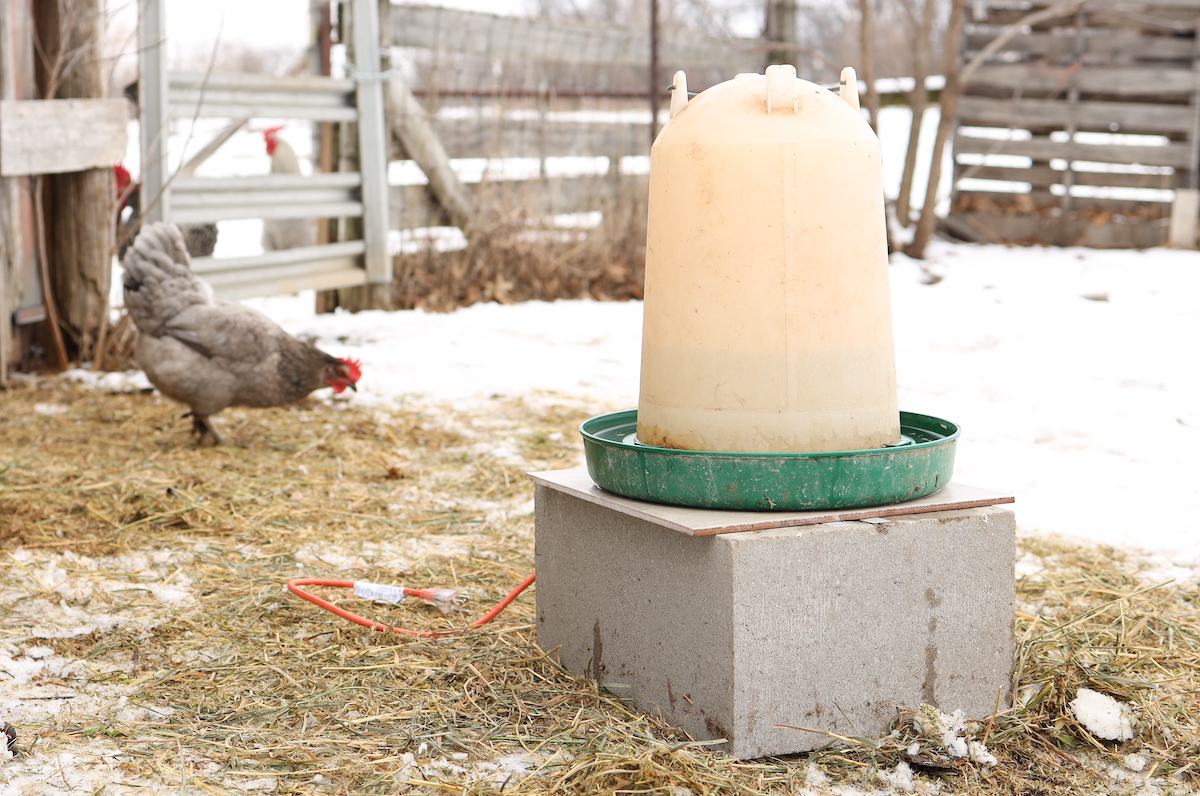
Size of the Tank
When choosing a water heater for chickens, the size of the tank is an important factor to consider. A larger tank will be able to hold more water, allowing for a greater amount of water to be heated at once. This can be particularly beneficial in colder climates, where it may be necessary to provide heated water multiple times a day to keep chickens healthy and comfortable.
Power Source
The power source of the water heater should also be taken into account. Many water heaters are powered by electricity, but solar powered models are also available. Solar powered water heaters are an excellent choice for those looking to reduce their energy costs and take advantage of renewable energy sources.
Safety Features
When selecting a water heater for chickens, it is important to make sure that the model is equipped with safety features. Look for units with automatic shut-off switches and temperature regulators, which will help to ensure that the water stays at a safe temperature and does not become too hot. Additionally, it is important to make sure that the model is designed with durable materials that are resistant to rust and corrosion.
Installation of Chicken Water Heaters
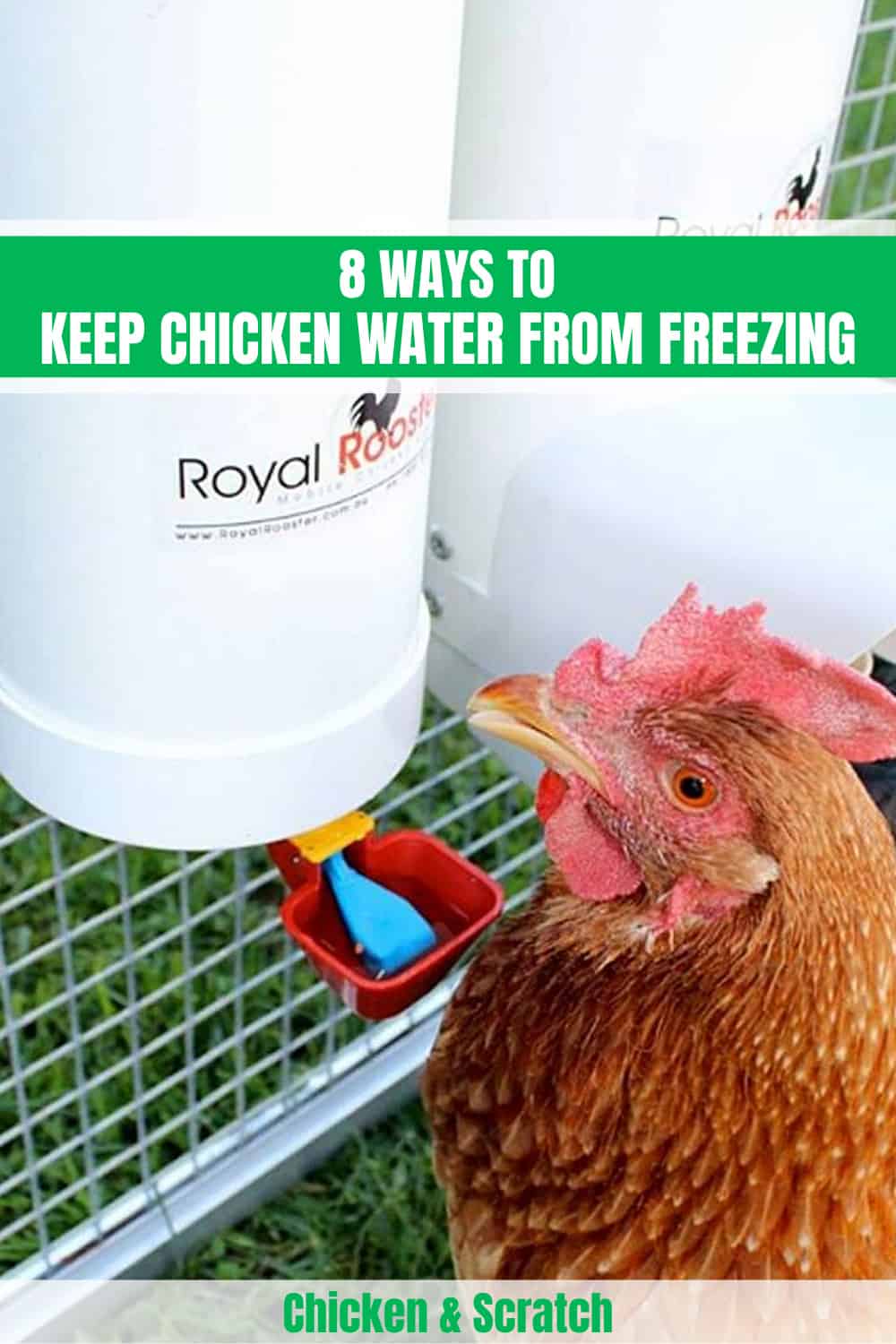
Installing a chicken water heater can be a great way to provide your chickens with access to clean, warm water during the cold winter months. Before installing a chicken water heater, it is important to make sure the area is safe and free from any electrical hazards.
Step 1: Place the chicken water heater in an area that is easily accessible to the chickens, such as near the coop or in a sheltered area. Make sure the area is free from any water sources and that the chickens cannot come into contact with the heater itself.
Step 2: Connect the heater to a power source. If connecting to a standard wall outlet, make sure to use a GFCI (Ground Fault Circuit Interrupter) outlet to protect against electric shock. If the heater is a submersible model, it should be connected to a GFCI-protected outlet as well.
Step 3: Fill the chicken water heater with water. Make sure to use clean, safe water that is free of debris and impurities.
Step 4: Plug the heater in and adjust the temperature settings according to the manufacturer’s instructions. The water should be kept at a temperature of at least 45°F (7°C) to prevent freezing.
Step 5: Test the heater to make sure it is working properly. Place a thermometer in the water and wait for the temperature to reach the desired level.
Step 6: Keep an eye on the heater to make sure it is working properly and check the water temperature regularly.
By following these steps, you can be sure that your chickens will have access to clean, warm water during the cold winter months, helping them to stay healthy and thrive all year long.
Maintenance of Chicken Water Heaters
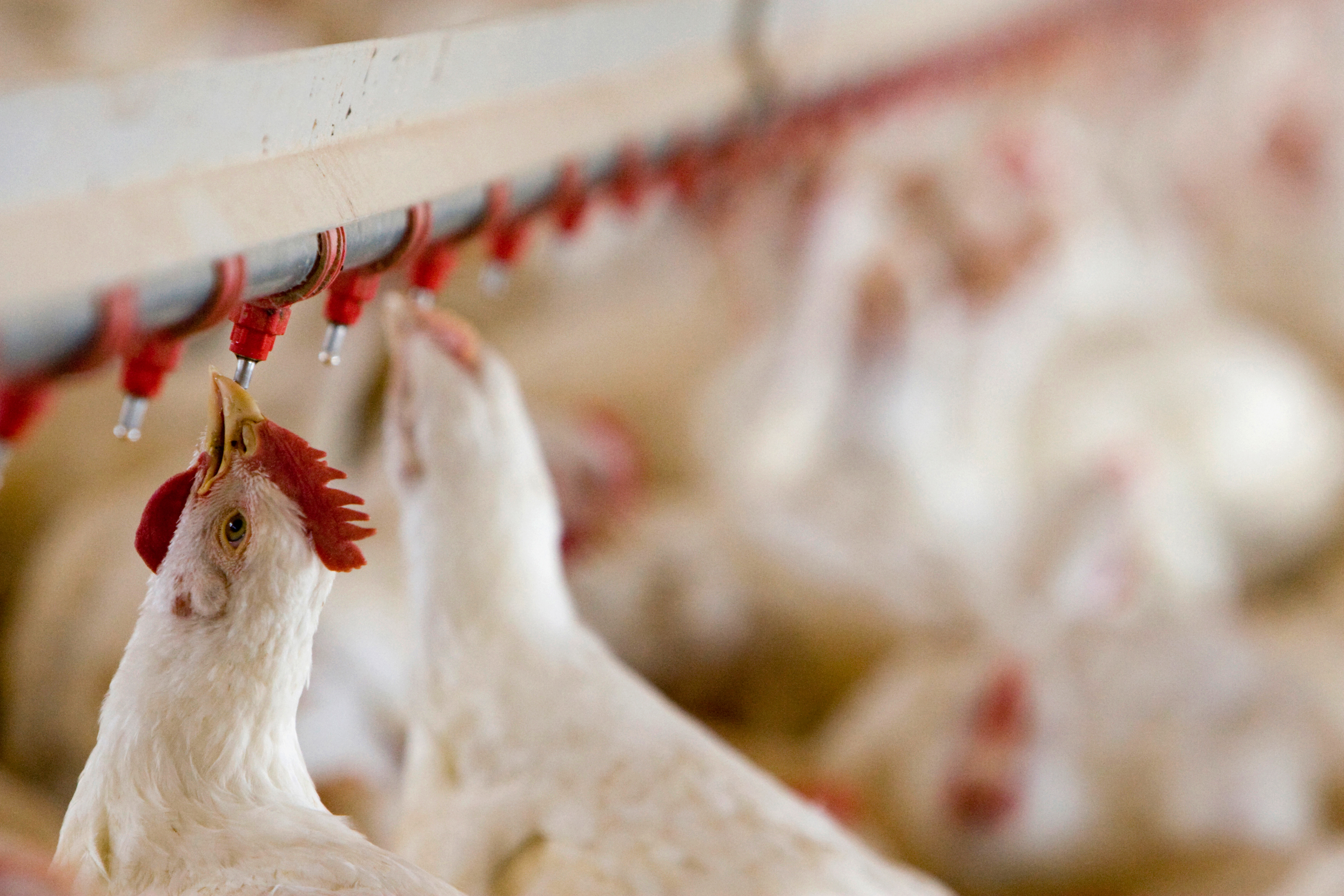
Clean Regularly
- Remove heater from water source every one to two weeks.
- Clean any accumulations of debris on the outside of the heater with a soft brush or damp cloth.
- Wipe the cord and plug with a damp cloth.
- Check for signs of wear on the cord and plug.
Check Wiring Regularly
- Check the wiring and connections regularly to ensure they are in good condition.
- Correct any loose wires or connections.
- Check the temperature setting and make sure it is set to the desired level.
Check Heater for Leaks
- Check the heater for any signs of leaks.
- Replace any parts that are leaking or damaged.
Replace Heater as Needed
- Replace the heater as needed.
- Replace the heater every two to three years or as needed.
- Check the manufacturer’s warranty for any special instructions regarding replacement.
Troubleshooting Common Issues

1. Poor Water Flow
- Verify that the water heater is not blocked by debris
- Check if the water pressure is adequate
- Make sure the water heater is properly connected
- Check the water heater for signs of corrosion
2. Lower Water Temperature
- Ensure the thermostat is set at the correct temperature
- Check the water heater for signs of wear and tear
- Verify the thermostat is functioning properly
- Check the timer is set to the right time
3. Leaks
- Inspect the entire system for leaks
- Make sure the water heater is properly connected to the pipes
- Check the water heater for signs of corrosion
- Verify that the water pressure is adequate
4. Noisy Operation
- Check for loose screws or bolts
- Inspect the water heater for signs of wear and tear
- Make sure the water heater is properly connected
- Verify that the water pressure is adequate
Alternatives to Chicken Water Heaters
When it comes to providing water to your chickens, there are several alternatives to chicken water heaters. Ideally, the water should be heated in the winter months in order to prevent freezing.
Insulated Waterers: Insulated waterers are a great option for keeping water from freezing in cold climates. These waterers are designed with an insulated container and lid, which helps keep the water at a consistent temperature.
Heated Bowls: Heated bowls are another option for providing warm water to your chickens. These bowls are heated to a safe temperature and are designed to prevent spilling.
Stock Tank Heaters: Stock tank heaters are a great option for keeping large amounts of water from freezing. These heaters are placed in the bottom of the tank and keep the water from freezing.
Tank De-Icers: Tank de-icers are a great way to keep water from freezing. These devices are placed in the water to keep it from freezing.
Solar Heaters: Solar heaters are a great way to provide warmth to the water without the use of electricity. These heaters absorb the sun’s energy and use it to keep the water at a safe temperature.
Thermostatically Controlled Heaters: Thermostatically controlled heaters are designed to turn on and off based on the temperature of the water. This helps keep the water at a safe temperature without having to constantly monitor it.
Heat Lamps: Heat lamps are a great option for providing warmth to the water. These lamps are designed to provide direct heat to the water, which helps keep it from freezing.
Microwave Heaters: Microwave heaters are a great way to provide warmth to the water without the use of electricity. These heaters are designed to absorb the microwave’s radiation and transfer it to the water, which helps keep it from freezing.
Hot Water Bottles: Hot water bottles are a great way to provide warmth to the water. These bottles are filled with hot water and placed in the water to provide warmth.
Water Heater Covers: Water heater covers are a great way to keep the water from freezing. These covers are designed to fit over the water heaters, which helps keep the water warm and prevents freezing.
Thermal Blankets: Thermal blankets are a great way to provide warmth to the water. These blankets are designed to fit over the water heater and help keep the water at a safe temperature.
Heated Mats: Heated mats are a great way to provide warmth to the water. These mats are placed in the water and provide a consistent and steady heat.
Frequently Asked Questions
What are the Benefits of Using a Chicken Water Heater?
Using a chicken water heater provides numerous benefits to chicken keepers. Chickens need access to clean, unfrozen water in order to stay healthy and to produce quality eggs. A chicken water heater helps to keep water from freezing during the winter months, which can be essential in colder climates. It also helps to keep water clean by discouraging algae growth and reducing the amount of dirt and debris that can enter the water. Additionally, a chicken water heater can help chickens stay hydrated during hot summer months, ensuring they have ample access to fresh, clean water.
How does a Chicken Water Heater Work?
A chicken water heater is a device that is used to keep a chicken’s water supply from freezing in cold temperatures. The water heater is typically placed in the coop and works by circulating warm water from an underground heat source through the coop’s water lines. The heated water keeps the water supply from freezing, allowing the chickens to access water even in the coldest months. The water heater also helps to reduce the amount of water that is lost due to evaporation. With a chicken water heater, chickens can access fresh, clean water year-round, helping to ensure their health and wellbeing.
What Kind of Water Heater is Best for Chickens?
Immersion Heaters: Immersion heaters are the most popular and cost-effective water heaters for chickens. They are simple and easy to install, and come in a variety of sizes and wattages. They are placed directly into the water container, and the heat generated warms the water to a comfortable temperature for the chickens.
Submersible Heaters: Submersible heaters are a great option for larger chicken flocks. They are submerged in the water and can be used to heat larger quantities of water. The downside to these heaters is they can be expensive and require more maintenance than immersion heaters.
Solar Heaters: Solar heaters are a great option for those who want to take an eco-friendly approach to keeping their chickens’ water warm. They are easy to install and require no electricity, making them a great choice for those on a tight budget. The downside is they require consistent sunlight to maintain the water temperature.
Electric Heaters: Electric heaters are a great option for those who don’t have access to solar power. They are more expensive than solar heaters, but they are an excellent choice for those who need to keep a consistent temperature. They are also easy to install and require no maintenance.
Thermostats: Thermostats are an essential part of any chicken water heater setup. They are used to regulate the temperature of the water and keep it at a comfortable and safe level for the chickens. They are easy to install and are an essential part of any chicken water heater.
What Temperature Should the Water Heater be Set At?
Winter: During the winter months, the water heater should be set at 75°F (24°C).
Summer: During the summer months, the water heater should be set at 85°F (29°C).
- The temperature should be maintained consistently, so check the temperature periodically with a thermometer.
- Insulate the water heater and pipes to keep the water warm.
- Keep the water heater away from drafts and direct sunlight.
- Check for leaks and broken pipes on a regular basis.
Setting the water heater at the correct temperature is essential for the health and well-being of your chickens. Too hot or too cold water can cause health problems and can even lead to death.
How Often Should the Water Heater Be Checked and Maintained?
Regularly: Water heaters should be regularly checked and maintained to ensure proper functioning, optimum performance, and safety.
- Check the temperature of the water every few days.
- Clean the water heater and its components every month.
- Check for any signs of damage or corrosion.
- Check the thermostat settings.
- Check for any leaks.
- Check for any loose electrical connections.
Annually: To ensure long-term performance, it is important to check and maintain your water heater annually.
- Check the anode rod and replace it if necessary.
- Flush the water heater to remove sediment build-up.
- Check for and replace any worn-out parts.
- Check for any gas and water leaks.
- Inspect the venting system.
- Check the safety valves.
By regularly and annually checking and maintaining your water heater, you can ensure that your chickens have access to clean, safe, and warm water, giving them the best chance of thriving.
Conclusion
Chicken water heaters are a great way to ensure your chickens have access to clean and warm water, even in the winter months. Not only does this help to keep your chickens healthy and thriving, but it can also help to reduce the amount of time and effort you spend on chicken husbandry. With the right setup and maintenance, these heaters can provide your chickens with a great source of water for years to come.
